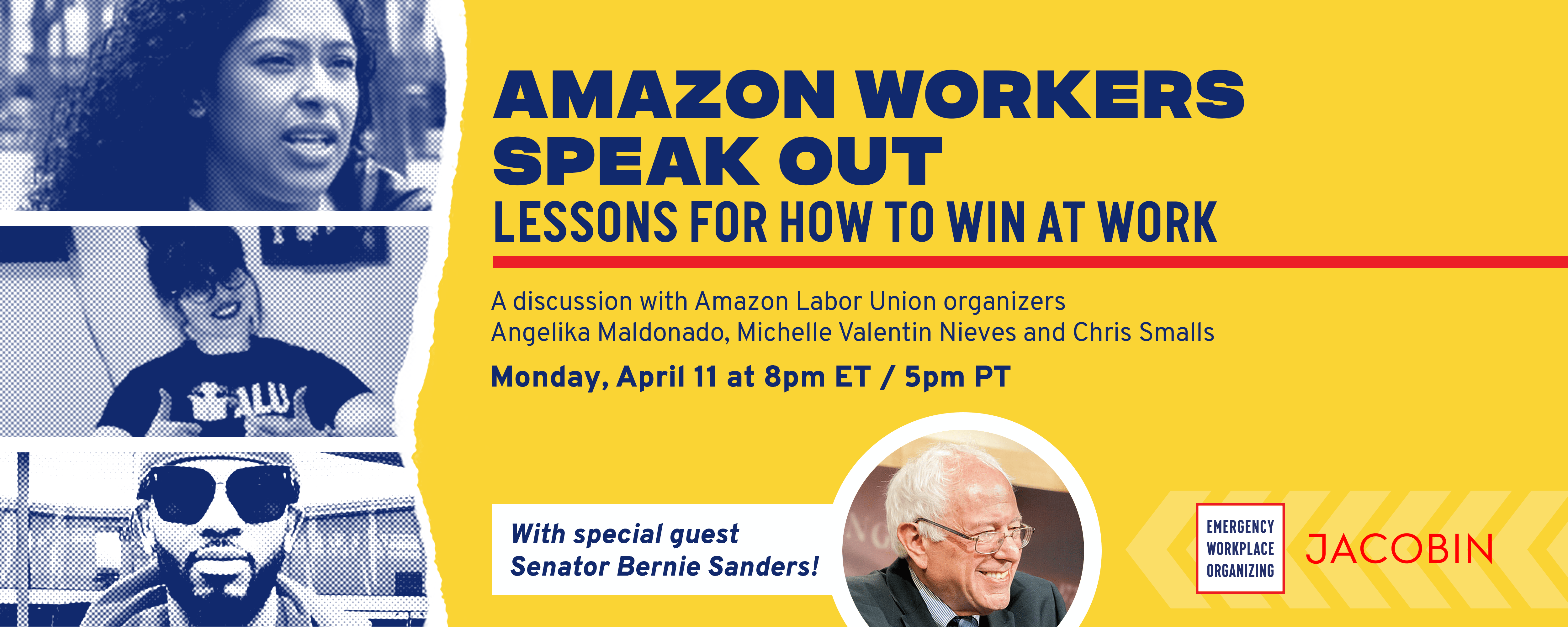Just over a week after workers’ historic victory unionizing the first Amazon warehouse in the country, members of the Amazon Labor Union (ALU) joined the Emergency Workplace Organizing Committee (EWOC) and Jacobin for a conversation on the campaign’s success. ALU organizers Chris Smalls, Angelika Maldonado, and Michelle Valentin Nieves reflected on the biggest lessons learned from two years of organizing at the Staten Island facility. Here are some of their key takeaways.
Creating Awareness
“In the beginning of our campaign, we had to educate a lot of workers about what a union provides and what a union represents,” said Smalls. “I tell the workers here in Staten Island, as they get on the bus, just simply ask your bus driver. They are in the union, and I guarantee you they love their job and love their benefits.”
He added that as an organizer, it’s also crucial to learn your rights, what you deserve, what you can fight for, and how you’re protected. When beginning these conversations with co-workers, especially when there is fear or uncertainty, you’ll need to be able to answer questions, or direct them to someone who can.
Maldonado added that many workers at Amazon did not initially believe they were entitled to higher pay or benefits, so it’s crucial to “let people know that wherever you work, you deserve rights.”
“Try to recruit as many people as you can, try to talk to as many people as you can, all the time, said Valentin Nieves. “If you’re on break, if you’re in the restroom, if you’re outside drinking coffee…it can be any random place. Try to bring as many people in, because there’s strength in numbers.”
Staying Positive
Valentin Nieves stressed the importance of creating a positive work culture, forming bonds with your co-workers, and taking care of each other because management won’t.
One way the ALU formed these bonds was by hosting potlucks, barbecues, and bonfires.
“Food is the way to the heart. If you want to bring people together, you have to feed them,” said Smalls, adding that conversations weren’t always about the union. “We just made a space for workers to feel comfortable.”
Having conversations about everyday life helped build trust on the floor and dispel myths that management would spread about the union acting as outside agitators. “We had food, we were playing music at the bus stop… We were just being ourselves,” said Maldonado.
Persistence Pays Off
Organizers stressed the importance of showing up every day, being present before employees come to work and as they leave for the day. For Smalls, this meant waiting at the bus stop every day, ready to talk to workers.
“We had days with losses, no signatures, [but] every day is day one. Consistency and sacrifice. Be out there every single day,” said Smalls. “Show people, don’t just talk about it. Do things employers won’t ever do. Help workers out.”
Many workers who initially showed no interest in the union eventually came on board.
“People walked past us for two or three months. They wouldn’t take a flier, wouldn’t take a pamphlet, wouldn’t say ‘hi,’” said Smalls. “But that one day they realize management is not on their side, they come out and sign up.”
Looking for advice on organizing your workplace? Talk with an EWOC organizer to get resources and support to help you win the changes you want to see at work.




